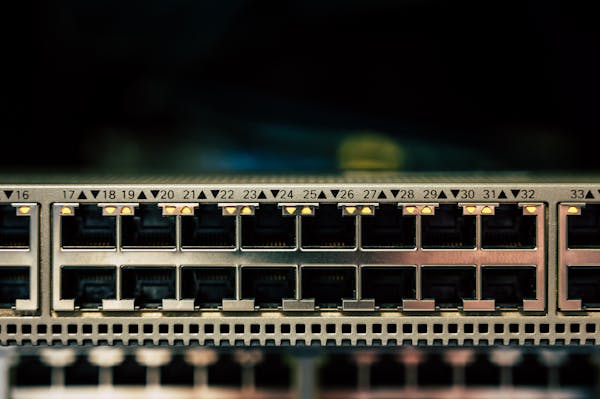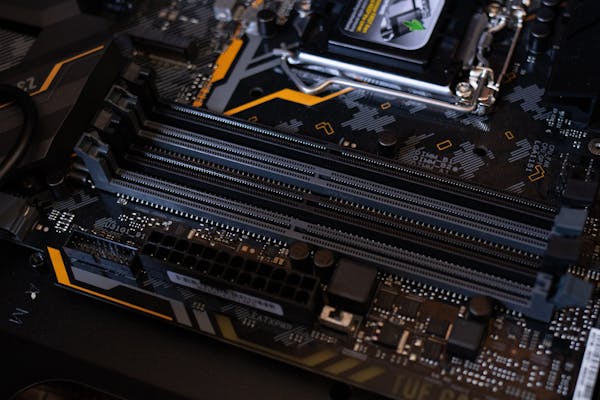Source article: https://heyzine.com/ (4G rotating proxy mobile for sale)

Understanding Dynamic 4G Proxy Servers
In today’s digital landscape, mobile 4G proxies have emerged as a vital tool for bypassing geo-restrictions.
Defining 4G Rotating Proxies
4G rotating proxies leverage mobile networks to provide changing IPs to users. Unlike static proxies, they rotate IPs after set intervals, reducing detection risks.
Operational Dynamics
When connected, a dynamic IP from a mobile network is provided. These IPs rotate based on time or requests, making tracking difficult.
Why Opt for 4G Rotating Proxies
- Enhanced Anonymity: Dynamic IP rotation masks real IP addresses.
- Bypassing Geo-Restrictions: Changing IPs facilitate unrestricted browsing.
- Reduced IP Bans: Frequent IP changes avoid detection systems.
Practical Implementations
- Information Gathering: Rotating IPs ensure continuous data collection.proxies support multiple profiles.
- Marketing Research: Changing IPs simulate diverse user locations.
- o Consider}
When opting for a 4G rotating proxy, consider:
- Number of Available IPs: A larger pool enhances anonymity.
- Rotation Frequency: Determine if the service rotates per request.
- Geographical Coverage: Access to multiple regions broadens usability.
Limitations to Be Aware Of
- Budget Concerns: 4G proxies may be pricier compared to other types.
- Connection Stability: Mobile networks may affect consistency.
- Regulatory Concerns: Ensure usage aligns with laws.
Final Thoughts
Mobile 4G proxies offer unparalleled anonymity, establishing their importance in modern internet usage.
Understanding the Operational Aspects of Mobile 4G Proxies
Amidst the landscape of digital security, 4G rotating proxies have become essential components for bypassing geo-restrictions.
What Are 4G Rotating Proxies?
These proxies employ cellular data connections to rotate IP addresses to users. Unlike static proxies, they rotate IPs after set intervals, improving security.
Mechanism Behind 4G Rotating Proxies
When activated, a dynamic IP from a mobile network is provided. These IPs rotate based on time or requests, making tracking difficult.
Why Opt for 4G Rotating Proxies
- Enhanced Anonymity: Dynamic IP rotation obscures user identity.
- Overcoming Location Barriers: Changing IPs facilitate unrestricted browsing.
- Minimized Blocking Risks: Frequent IP changes prevent bans.
Applications of 4G Rotating Proxies
- Information Gathering: Rotating IPs ensure continuous data collection.
- Social Media Management: Dynamic proxies facilitate automation.
- Ad Verification: Changing IPs monitor competitor strategies.
Factors to Consider
In choosing a proxy service, consider:
- Number of Available IPs: A larger pool enhances anonymity.
- IP Change Intervals: Determine if the service rotates per request.
- Location Options: Access to multiple regions broadens usability.
Potential Challenges
- Pricing Structures: 4G proxies may be pricier compared to other types.
- Performance Issues: Mobile networks might experience fluctuations.
- Ethical and Legal Considerations: Ensure usage aligns with laws.
Summing Up
Mobile 4G proxies provide dynamic IP solutions, establishing their importance in contemporary online activities.
The evolving internet ecosystem, maintaining online privacy and bypassing restrictions has become more critical than ever. Businesses, marketers, and developers often utilize proxy technologies to simulate different locations. Among these, 4G LTE rotating proxy servers have become game-changers.
What makes them better or worse than other proxy types like data center proxies? Let’s dive deep.
== What is a 4G Rotating Proxy?
A 4G rotating proxy is a proxy that routes internet traffic through a real mobile device. These proxies change IPs at preset intervals or upon request, mimicking human behavior and eliminating the risk of bans or blocks.
== Main Proxy Types
Let’s summarize the key proxy types before comparing:
1. **Datacenter Proxies**
– High-speed and cheap, but easily flagged.
2. **Residential Proxies**
– Use IPs assigned to real homes. More reliable, but slower and costlier.
3. **4G Mobile Proxies**
– Use real SIMs on LTE networks. Best for scraping, bots, social media.
4. **SOCKS5 Proxies**
– Protocol-based, flexible, used for various apps, not just HTTP.
== Comparison Table
| Feature | 4G Rotating Proxies | Datacenter Proxies | Residential Proxies | SOCKS5 Proxies |
|————————|———————|———————|———————|—————-|
| IP Source | Mobile Network (SIM)| Data Centers | Home IPs | Varies |
| Rotation | Yes (Frequent) | Sometimes | Optional | Manual |
| Ban Resistance | High | Low | Medium | Depends |
| Speed | Medium | High | Low-Medium | High |
| Price | High | Low | Medium | Low-Medium |
| Target Use | Social, Ads, Bots | General Scraping | E-commerce, Research| General |
| Block Detection | Low | High | Medium | Medium |
== Technical Advantages of 4G Rotating Proxies
What gives mobile proxies their edge?
– **Real Device Trust**: Websites trust mobile IPs more than others due to carrier NAT and wide user pools.
– **Shared Reputation**: IPs are shared across many users, making banning a single user risky.
– **Geo-targeted Mobile Carriers**: Rotate between networks in real U.S. cities or countries.
– **Dynamic Rotation**: Can rotate every few minutes or after each request.
– **Bypasses Captchas**: Mobile IPs are less likely to trigger captchas or challenge verifications.
== Where 4G Proxies Win
Let’s cut to the chase— if you’re scraping Google or LinkedIn, nothing works better than a solid 4G proxy.
– Instagram and TikTok trust mobile IPs.
– Web scraping? You’ll trigger fewer blocks.
– Ads management across banned zones? Done.
== Where They Fall Short
– **Cost**: They’re premium priced.
– **Speed**: Slower than static datacenter options.
– **Limited Threads**: Some providers limit concurrent usage.
== SOCKS5 vs 4G: Protocol vs Behavior
SOCKS5 proxies are great tools. But they don’t have native rotation.

| Attribute | 4G Proxy | SOCKS5 Proxy |
|———————|——————–|——————–|
| Protocol Type | HTTP/HTTPS | SOCKS5 (All apps) |
| Rotation | Yes | Manual |
| IP Trust Level | Very High | Medium |
| Use Cases | Social, Ads, Bots | Torrenting, Apps |
== Use Cases Side-by-Side
**4G Rotating Proxies:**
– Social Media Management
– Mobile Ad Verification
– SEO Scraping
– Sneaker Bots / E-com Testing
– Marketplace Automation
**Datacenter Proxies:**
– High-volume scraping (non-sensitive)
– Speed-demanding tasks
– Price-conscious campaigns
**Residential Proxies:**
– E-com price intelligence
– Research tools
– CAPTCHA-heavy targets
**SOCKS5 Proxies:**
– Application-level traffic routing
– Anonymity over torrents
– Bypassing firewalls
== How to Choose the Right One?
Each proxy has a time and place. Here’s how to choose:
– Need speed? Go datacenter.
– Need trust and stealth? Go 4G mobile.
– Need app-level routing? Go SOCKS5.
– Need wide IP pools without rotation? Try residential.
== Future of 4G Rotating Proxies
With AI detection systems growing smarter, only mobile IPs are keeping up. We’re seeing:
– 5G proxy rollouts in testing
– Smarter rotation algorithms
– Integration with automation platforms like Jarvee, NextPost, Puppeteer
== Final Verdict
If stealth matters, LTE proxies are your best bet. For any campaign that’s stealth-heavy or bot-powered, it’s worth the investment.
== Spintax Conclusion
If you’re testing products or scraping competitors, investing in the right proxy is key to success.
4G rotating proxies may cost more, but the results speak for themselves.
https://www.fortinet.com/resources/cyberglossary/proxy-server
https://en.wikipedia.org/wiki/Proxy_server
https://support.microsoft.com/en-us/windows/use-a-proxy-server-in-windows-03096c53-0554-4ffe-b6ab-8b1deee8dae1
https://www.reddit.com/r/explainlikeimfive/comments/1dfgepb/eli5_what_is_a_proxy_server_and_why_would_i_as_an/
https://surfshark.com/blog/proxy-server


BÀI VIẾT LIÊN QUAN
Exness – hỗ trợ 24/7
Khóa học giá rẻ – Nền tảng học online lớn nhất năm 2025
Thi bằng lái xe máy tại nguyễn ảnh thủ bao nhiêu tiền ?
Top Dịch vụ nội dung bằng tiếng Sunda – 0963138666
Mua tranh sơn dầu ở đâu uy tín? Cảnh báo các chiêu trò lừa đảo khi mua tranh online
Lựa chọn DV viết bài bằng tiếng Susu – 0963138666
{Thị Trường Bất Động Sản Quý 1/2025: | Toàn Cảnh Bất Động Sản Quý 1/2025: | Bất Động Sản Đầu Năm 2025: | Diễn Biến Thị Trường Quý 1/2025: | Phân Tích Thị Trường Quý 1/2025: Bứt Phá Tình căn hộ Bcons Solary
Genuine Madrid’s 2024/25 Salary Report: Who Makes What at the Bernabéu?